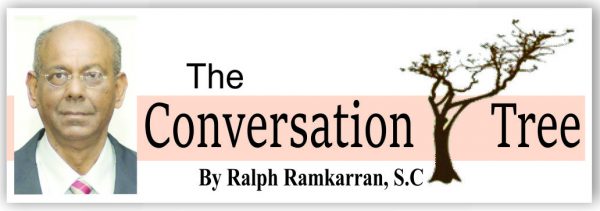
But this issue has now gone beyond what the constitution says and means. The President’s failure to fix a date for elections is because APNU+AFC intends to remain in office for as long as possible. This is aided by the majority on the Guyana Elections Commission who have voted, and will no doubt continue to support, a new registration exercise. A nation-wide house-to-house registration exercise will last into next year. If APNU+AFC’s effort to hold political power succeeds, it will hold elections between May and August next year, when its term of office would have otherwise lawfully ended. Having been caught flat-footed by the no-confidence vote, it lost time, which it now seeks to unconstitutionally regain, to put systems in place to win the elections. This clearly is a matter of political life and death and explains the tenacity of its efforts.
If the electoral list is the problem, the National Assembly can extend the life of the current list beyond April 30th. The Elections Commission already has power to remove the names of persons who have died. The list of deceased persons is expected to be provided by the Registry of Births and Deaths.
Since 1992, systems accepted by all have been in place at polling stations to prevent unauthorised persons from voting. There is, therefore, little or no danger that impersonation at polling stations of persons who have left Guyana will take place. None of the fears expressed by political parties about elections since 1992 have a basis in reality or have materialised. Only one party has had a history of election rigging in Guyana and that party is the PNC. And it was able to do so because it held political power and was protected by the West. The fears about a “credible” list, now being used as an excuse by the President for not calling elections, are politically manufactured for the purpose of delaying the elections.
The public by now recognises that what is going on is a charade and that new elections are not going to be held willingly by the Government, which must be aware of the potential harm of taking Guyana down a path which violates the rule of law and the Constitution of Guyana and which may incur sanctions from the international community. It appears that the Government is prepared to accept these consequences because the delay is vital to its survival. This Government, unlike the last PNC Government between 1985 and 1992, takes its inspiration from Forbes Burnham, the Founder Leader of the PNC. PNC Governments led by Forbes Burnham survived elections rigging and authoritarian rule. APNU+AFC no doubt believes that, like the PNC in the past, it can not only weather any storm that its violation of the Constitution incurs, but that its very existence depends on it doing so. The Government may also be relying on the perceived sympathy with which it is viewed by Western capitals. Oil and the interests of oil producers would be looming large in the calculations of the West in their decisions about Guyana.
Unfortunately for APNU+AFC, the institutions of democracy have flourished in Guyana for over twenty-five years. Integrity has returned to the judiciary and a final court exists in the CCJ. The international situation that sustained the PNC in office has disappeared. Concerns being expressed by countries about democracy in other countries are no longer considered to be matters of the internal affairs of the subject country. That is the reason why sanctions are now imposed routinely against countries that violate constitutional order. The most egregious example today is Venezuela, against which severe international sanctions have been imposed. Therefore, notwithstanding the Government’s apparent determination to resist potential international sanctions, which it may be hoping that sympathy from the West may spare it, Guyana still faces a high degree of uncertainty.
Once the Government remains in office beyond March 21st, domestic turmoil will intensify. Investments have already slowed and will slow even further. Pending investment decisions will be postponed. Contracts will not be signed with the Government for fear that they will not be recognised by an incoming administration. Court cases against the Government will multiply. CARICOM may be forced to take a stand against an unlawful Government, having failed to do so between in the 1970s and 1980s against the PNC and then eagerly doing so against a then lawful Janet Jagan Government in 1999. Guyana is in for an era of dim political fortunes, even as its economic fortunes beckon.




